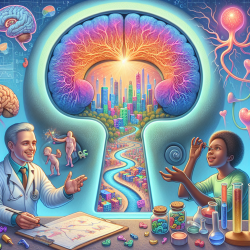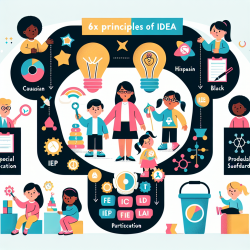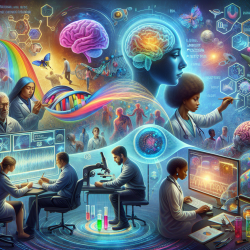Introduction
Empathy, the ability to understand and share the feelings of others, is a cornerstone of social cognition and essential for maintaining healthy relationships. A recent study titled Empathy in Hippocampal Amnesia sheds light on the role of the hippocampus in empathy, offering new insights that could enhance the practice of speech-language pathologists, particularly those working with children.
The Study: Empathy and the Hippocampus
The study conducted by Beadle et al. (2013) explored the contribution of the hippocampus to empathy by examining patients with hippocampal amnesia. The findings revealed that patients with hippocampal damage exhibited lower levels of both cognitive and emotional empathy compared to healthy participants. This suggests that the hippocampus plays a significant role in processing and expressing empathy.
Implications for Practitioners
For speech-language pathologists, especially those working with children, understanding the neural underpinnings of empathy can be transformative. Here are some practical applications:
- Enhancing Empathy in Therapy: Recognizing the role of the hippocampus can help practitioners develop strategies to foster empathy in children, particularly those with memory impairments.
- Tailored Interventions: By incorporating activities that stimulate hippocampal function, such as memory games and storytelling, therapists can potentially improve empathy-related outcomes.
- Interdisciplinary Collaboration: Collaborating with neuroscientists can provide deeper insights into the cognitive processes involved in empathy, leading to more effective therapeutic approaches.
Encouraging Further Research
The findings of this study open the door for further research into the relationship between the hippocampus and empathy. Practitioners are encouraged to explore how these insights can be applied in different therapeutic contexts and to contribute to the growing body of knowledge in this area.
Conclusion
The study of empathy in hippocampal amnesia highlights the intricate relationship between memory and social cognition. For speech-language pathologists, understanding these connections can enhance therapeutic practices and improve outcomes for children. As we continue to unravel the complexities of the brain, the potential for innovative and effective interventions grows.
To read the original research paper, please follow this link: Empathy in Hippocampal Amnesia.










